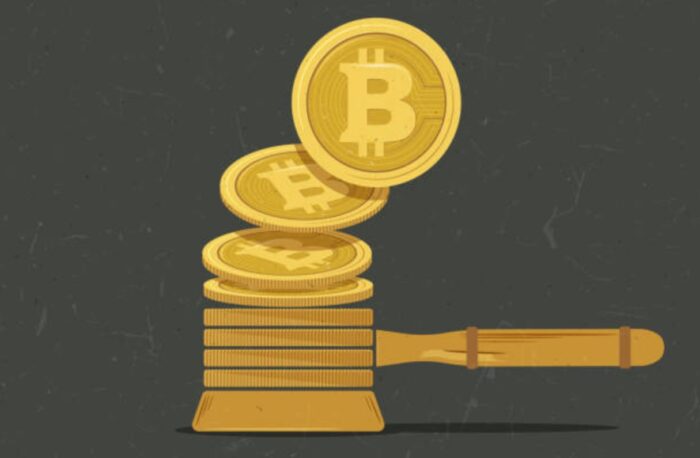
The popularity of virtual assets is multiplying. Global companies accept coins as payment for their services and goods. Cryptocurrency today provides a unique opportunity to quickly make a financial transaction, increase income and gain access to various financial instruments. More and more people are interested in how to buy cryptocurrency, pay attention to the exchange rate, and invest in virtual assets.
The active growth in the popularity of virtual assets has led to the need for cryptocurrency regulation. But not everything is as simple as it seems at first glance. Today we will consider the features of cryptocurrency regulation, figure out why it is needed, and whether there is a future of cryptocurrency at the legislative level.

The Current State of Cryptocurrency Regulation
Today, we can observe contrasting approaches to cryptocurrency in different countries. Japan and Switzerland legalized cryptocurrency. It gives investors more opportunities and protects their interests. Most European countries, America and England, are at the level of creating legislative acts and accepting virtual assets. China has completely banned the use and mining of cryptocurrency.
Different approaches to cryptocurrency significantly complicate the position of investors and destabilize the market. There are countries where it is forbidden to use some types of cryptocurrencies, leading to misunderstandings and difficulties for investors. The tightening of rules for virtual asset use leads to users using underground systems to manage cryptocurrency or even leave the country.
The biggest problem facing regulation: the definition of the cryptocurrency industry. Tokens are not securities or precious nuggets; they cannot be touched or put into a wallet—difficulties in reporting cause difficulties creating a legislative framework and further solutions.
Separately, it is worth noting the issue of decentralized industry. Almost all cryptocurrencies do not have a single control center. Because of this, it is impossible to find a person responsible for conducting operations. Governments need to create an independent body that will control the use of virtual assets.

The Need for Regulation of Cryptocurrency
Cryptocurrency regulation is necessary to protect users’ assets and make them legal. It will help increase the confidence level in the virtual asset market and its attractiveness. Thus, you can significantly reduce cryptocurrency risks and make assets a legitimate financial instrument. Among the potential dangers of tokens, it is worth noting:
- fraud;
- laundering of money;
- market instability.
Government intervention is necessary to avoid any fraudulent activity. The anonymity of blockchains and virtual assets guarantees users the highest level of protection. When making a transaction, there is no information about the recipient and the sender, ensuring the maximum security level. But it also attracts scammers and money launderers. Regulation will reduce this likelihood, and cryptocurrencies will only be used for legitimate purposes.
Virtual wallets can be hacked. Attackers can transfer tokens to their accounts or use information about the owner for blackmail or other purposes. Regulatory oversight is needed to strengthen consumer protection and ensure investor peace of mind.
Market volatility is very worrying for investors. Cryptocurrency users invest at their own risk. Laws and regulations will help stabilize the exchange rate, giving currency holders peace of mind.
Separately, it is worth noting that regulation will significantly increase public confidence in cryptocurrencies. As surveys show, many do not use tokens because there are no security guarantees. Legislative acts will help raise awareness and trust in virtual assets. Accordingly, the number of cryptocurrency users will increase, positively affecting the entire industry.

Government Reaction to Cryptocurrency
In 2022, the United States created an extraordinary government that controls cryptocurrencies and virtual assets. There is every chance of thinking about who will manage the market more strictly, and the number of incoming investments will decrease significantly. The main goal of regulation in America is to reduce the percentage of money laundering using virtual currencies. In the US, cryptocurrencies are considered securities. At the same time, banks cannot exchange or accept tokens.
England has similar views on virtual assets. The government believes that cryptocurrency regulation will help fight fraud and money laundering. The German government has created the most transparent and understandable framework for cryptocurrency regulation. Investors can safely use virtual assets. There are also taxes on tokens that help support the country’s economy. Most European Union countries have a friendly attitude towards virtual assets. Features of the regulation and use of cryptocurrencies depend directly on the land.
India is a country with mixed opinions on the regulation of cryptocurrencies. First, virtual assets were banned, then the ban was lifted. Today, the restriction on tokens has been lifted. At the same time, the country’s government has a negative attitude towards cryptocurrency. Up to the point that they proposed introducing a law for which holders of virtual assets could receive a prison term.
The situation is similar in China. In 2021, the government signed total cryptocurrency bans. But, in parallel with this, the country is working on creating a virtual yuan, which will become an alternative.
State intervention in the cryptocurrency market has two sides. On the one hand, this will help strengthen the value of assets, give protection to investors, and attract more users. On the other hand, stringent laws can severely restrict the movement of funds. High taxes and narrow limits will lead to the fact that investors will simply refuse to use cryptocurrency or change their place of residence to a country where there is more freedom.

The Future of Cryptocurrency Regulation
We should not dismiss the fact that the regulation of cryptocurrencies is developing. Each country has its own pace of creating laws and adopting virtual assets. But still, there are specific changes. Two points can be made:
- enhanced control of operations;
- standardization of tokens.
Increased control may limit investors. But at the same time, the level of protection of assets and personal data can significantly increase. It will increase the number of cryptocurrency users. A properly formed tax system will help improve the economic situation in the country and worldwide.
Each cryptocurrency is unique in its functions and purposes. The standardization of assets can drastically change the state of the industry because all tokens will be approximately the same. On the one hand, this will ensure market stability. On the other hand, the value of some assets may decrease, or they may depreciate altogether.
With the right approach to regulation, it is possible to create new digital assets, increase their popularity, and actively distribute them among users. It allows countries to develop, strengthen and create partnerships faster.






